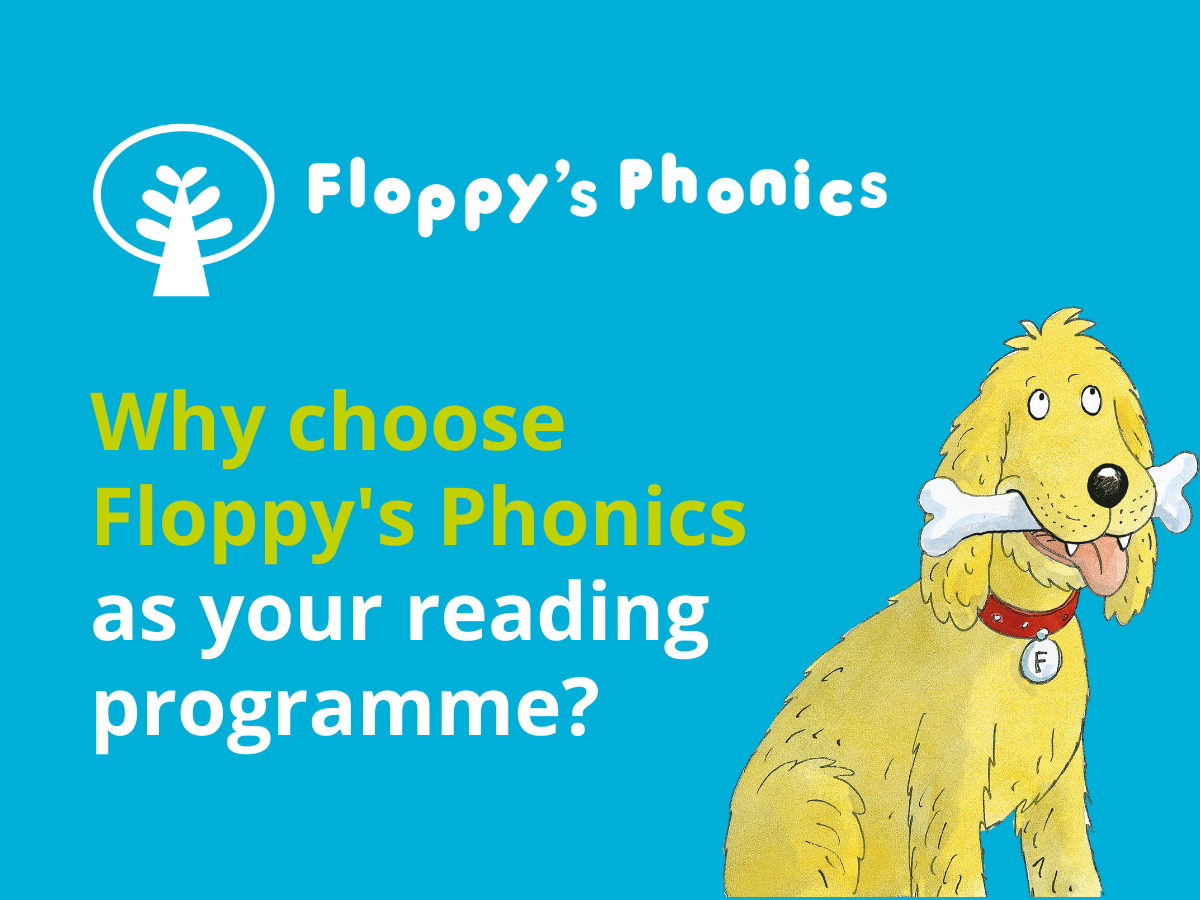Katreena Heywood, Early Years Lead at Hartford Manor Primary School, Cheshire, discusses why her school introduced Floppy’s Phonics as their reading programme and talks about some of the successes the school has had in teaching children to read and develop a love of reading. Read on to learn why choosing Floppy’s Phonics as their reading programme was the right decision for their school.
Supports independent learning
We were using Letters and Sounds as our reading programme and performing relatively well in the phonics screening check. However, as a Literary specialist for the English Hub, I had the privilege of working with Debbie Hepplewhite in my role to support those schools that were using Floppy’s Phonics. I hadn’t seen it in action before and didn’t know much about the programme. However, I was really impressed with it in terms of the resources that were available and the individual practice that it gave children. After spending two days working alongside Debbie and learning more about Floppy’s Phonics, I started to feel that our children were missing out on applying the skills they’d learnt in their phonics lessons to their reading and writing.
We adopted Floppy’s Phonics in January 2020, which was unfortunate timing, given that a few months later, schools were forced to lock down. However, we quickly realised that the programme provides strong links between home and school, so parents and children were able to continue with their learning during that time. Since then, we’ve continued to use Floppy’s Phonics and now have it embedded well in our school. There is a huge difference with our children in terms of their independence. The routines are rigorous and children know what to expect. Every classroom and breakout area has all the resources ready for children, so that whenever they need to use them for writing, spelling or reading they can.
I work for Childer Thornton English Hub and those schools that I have worked with, who have adopted the programme, have seen success too, just like us. We absolutely love Floppy’s Phonics!
Saves time and builds confidence
Floppy’s Phonics is a whole-class programme so, obviously, the teachers lead the main teaching. However, our TAs are really proficient at intervening at any point, to ensure that children keep up rather than catch up. And all the teachers and TAs genuinely feel that they are experts now. Over time, fewer and fewer people come and ask for support because when I go and visit lessons, I can see that they are really good at understanding the impact of their teaching and what needs to be done for any child who might be at risk of falling behind.
The resources are so well designed that teachers feel confident when they use them. They don’t have to spend time gathering any additional resources or planning materials and are, therefore, able to focus on what the children are doing in the lessons. They now have the time to work with individual children in a session: listen in to their reading; look at how they’re decoding; and support them in improving their skills. We also find that the resources are easy for the children to use, so once the teachers are well trained, the children become well trained.
Supports all children
Floppy’s Phonics is so rigorous that teachers are able to identify and work closely with any children who might be struggling. They can actually resolve issues within the lesson and of course, through assessments, can pick up on anything that they know the children need further work on.
The online platform is available to all children who use Floppy’s Phonics. They can log on individually and practise what they’ve learnt in the lesson. They can see the teaching resource that we’ve used, and also go back and look at resources that we’ve used in previous lessons.
Develops parental engagement
As part of the book bag routine, which is advocated within Floppy’s Phonics, our children take home their activity sheets or workbooks that they’ve been using. Parents can see any marking, they can see where their child has needed support and they can also practise any areas of the worksheet that we may not have covered in class. This means that they can see very clearly what point their child is at.
Parental engagement has really improved. We have reading meetings for parents to help train them and to help them understand how we use Floppy’s Phonics. They come and speak to us and ask for support if they need it. They ask intelligent questions about phonics because they completely understand it. It’s no longer a mystery to them and they feel completely involved with what their child is doing.
When children move from Reception and Year 1 into Year 2, everything stays the same, nothing changes, so parents become even more expert. We’ve noticed a particular support for our EAL parents because the online resource helps them to enunciate the sounds. Also, there are pictorial cues for them to understand the words. That’s been a fantastic help for them.
Develops vocabulary and learning
What we love about Floppy’s Phonics is that it develops children’s vocabulary and keeps them engaged throughout their lessons. There’s a speech and language element where children talk about what they can see, using their new vocabulary, including the new code that they’re learning. Their speech and language have developed significantly.
Children absolutely love the illustrations and the familiar characters which appear again in their decodable reading books. To them, it feels as if there’s a whole cycle of understanding why we are reading. They want to find out about the characters, talk about them – their characters and behaviours. Because of this, children really engage with their lessons.
I teach Reception and people ask me how I manage to get the children to work in their activity books, all at the same time. It’s because the children take ownership of their learning; they really feel like they can do it and it’s absolutely fantastic to see. I think that independence, excitement and interest in what they’re doing has made an enormous difference to our children’s love of learning to read.
More from Oxford Primary Literacy Team:
- Embedding Wellbeing in the Classroom
- What’s next after Read Write Inc. Phonics?
- Helping you and your children prepare for the phonics screening check
- Help your children become confident readers for the phonics screening check
- Ruth Miskin: How to help every child climb to the top of the reading ladder

